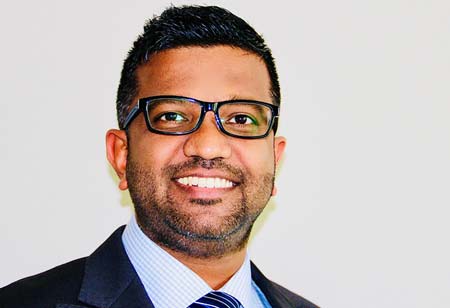Sugeesha Dinushan holds firm expertise in financial reporting, planning and analysis (FP&A), managing varied tasks like budgeting and forecasting, commercial finance, business strategy and ERP implementation across varied integrated sectors—FMCG, Wine & Spirits, Automotive, Manufacturing, Retail, Wholesale, Service, Legal, Travel, SaaS, and technology.
Can you give us a brief background about your roles in the organizations you're working for?
As a member of the Financial Planning and Analysis (FP&A) team, my role involves financial analysis and reporting, as well as financial planning and analysis for the AZNP space. Prior to this, I held a global role with similar responsibilities, where I focused on identifying and assessing risks and opportunities for the organization and the region. This included overseeing budgets and forecasts for the entire financial planning space.
My responsibilities directly involve collaborating with various stakeholders within the organization, such as the sales teams, demand planning teams, and regions, to ensure that we are within budget and forecast. I work closely with the finance directors of the region to establish the right processes and procedures for financial planning and analysis and ensure effective business partnering.
Overall, my role is centered on financial management and business partners, with a focus on identifying and assessing risks and opportunities, managing budgets and forecasts, and collaborating with stakeholders to achieve optimal financial outcomes.
What are some of the major challenges that your clients are facing in the mergers and acquisitions space? What are the steps you are taking to mitigate those challenges?
One of the major challenges organizations face is managing cash flow amid rising costs and inflation. In particular, energy prices in Europe and Australia have increased significantly in the past two quarters, leading to increased costs. To address this, we are exploring pricing strategies, innovation, and new business models to mitigate the risk. Supply chain disruptions, including shipping delays, have also had a significant impact on our bottom line, and we are actively working on addressing these challenges through various projects and initiatives.
“The finance function within modern enterprise needs to transform in order to drive agile and dynamic business operation and process.”
Innovation is a key factor in addressing cash flow challenges, particularly for small businesses seeking to gain market share. As a finance professional, the role of managing expenses and the bottom line has become increasingly important, especially in the last 12 to 18 months of the COVID-19 pandemic. To address these challenges, we have focused on maintaining costs, working smarter, and rethinking our business models. Sometimes this has involved difficult decisions, such as cutting certain programs or initiatives. With inflation on the rise, these efforts will become even more critical in the next six months, and all organizations should consider how they can adapt to these changes.
Could you please share details about a specific project you have worked on, and how you have leveraged technological elements to ensure its success?
Our organization places a significant emphasis on technology. We allocate resources to both maintain existing systems and explore new products, such as Anaplan, which we are currently implementing. This is in line with our goal of increasing efficiency and reducing labor costs. Improved technology translates to better outcomes, and we recognize its value in achieving our objectives.
We made significant investments in technology last year, and we continue to do so this year as well. Implementing new systems in a large organization is a complex process involving numerous stakeholders, but we are steadily making progress. We have ongoing projects aimed at improving profitability, both in the technology space and through strategic decision-making, such as selling one of our bottle-producing facilities. We prioritize cost efficiency in our wine production, ensuring that each bottle is produced at a reasonable cost and sold at a profit. Our growth markets are Asia and America, and we allocate resources to these regions to ensure that all players in our global organization are performing optimally. Our focus on maximizing revenue and reducing costs is essential to the success of our business.
What do you see as the future of space in the face of all these changes and disruptions?
The next 6-12 months will pose significant challenges for organizations, particularly for large entities. While small organizations may survive in the short term, their long-term prospects remain uncertain. To withstand these challenges, organizations must innovate. Failure to do so will result in falling behind in the race and losing ground to competitors. Offering smarter products and options to customers is crucial, particularly given the impact of inflation on customer spending. In the context of the internet economy and industry, the political climate and energy prices, particularly in Russia and Ukraine, are impacting Europe heavily, and businesses will struggle as a result. Cash flow and a healthy balance sheet will be top priorities for any organization in the next 12-18 months. In the long run, only those organizations that innovate and do business differently will survive.
What would be your piece of advice for budding professionals in the field?
It is important to constantly upskill oneself, regardless of one's position or level of experience. With the increasing prevalence of technology in various industries, many tasks and roles are becoming automated. To ensure continued relevance and job security, it is crucial to stay up-to-date with industry developments and acquire new skills.
Although technology can automate certain tasks, there are always new areas and opportunities for human skill and expertise. By upskilling, individuals can remain competitive and adaptable to changes in the job market. This is especially important in fields such as accounting and finance, where the implementation of new systems and programs has significantly altered the way work is done.
In conclusion, it is important for individuals to invest in themselves by continuously learning and improving their skills. By doing so, they can remain competitive, relevant, and valuable in their professional careers.












